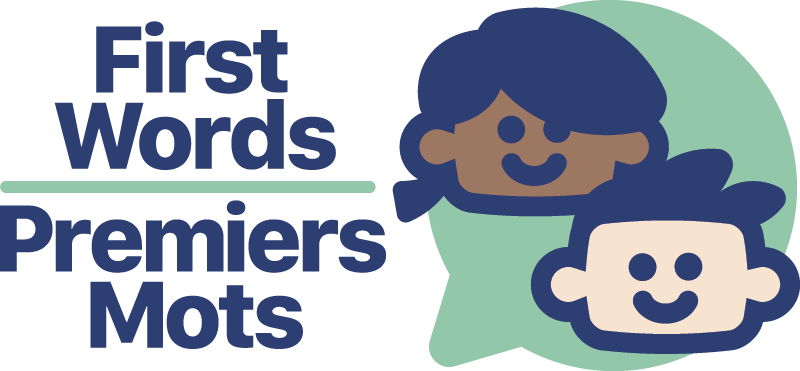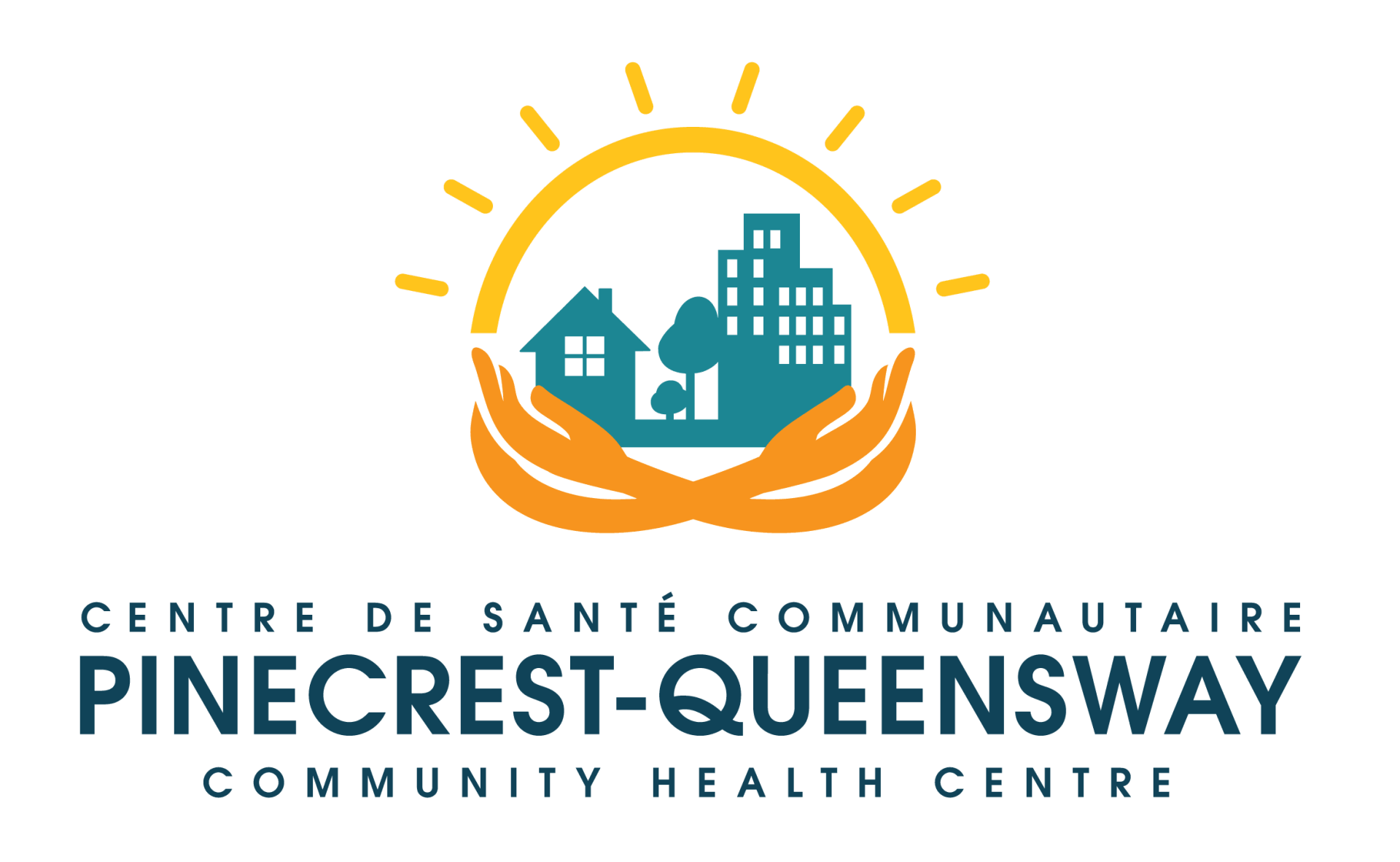Speech and Language Milestones
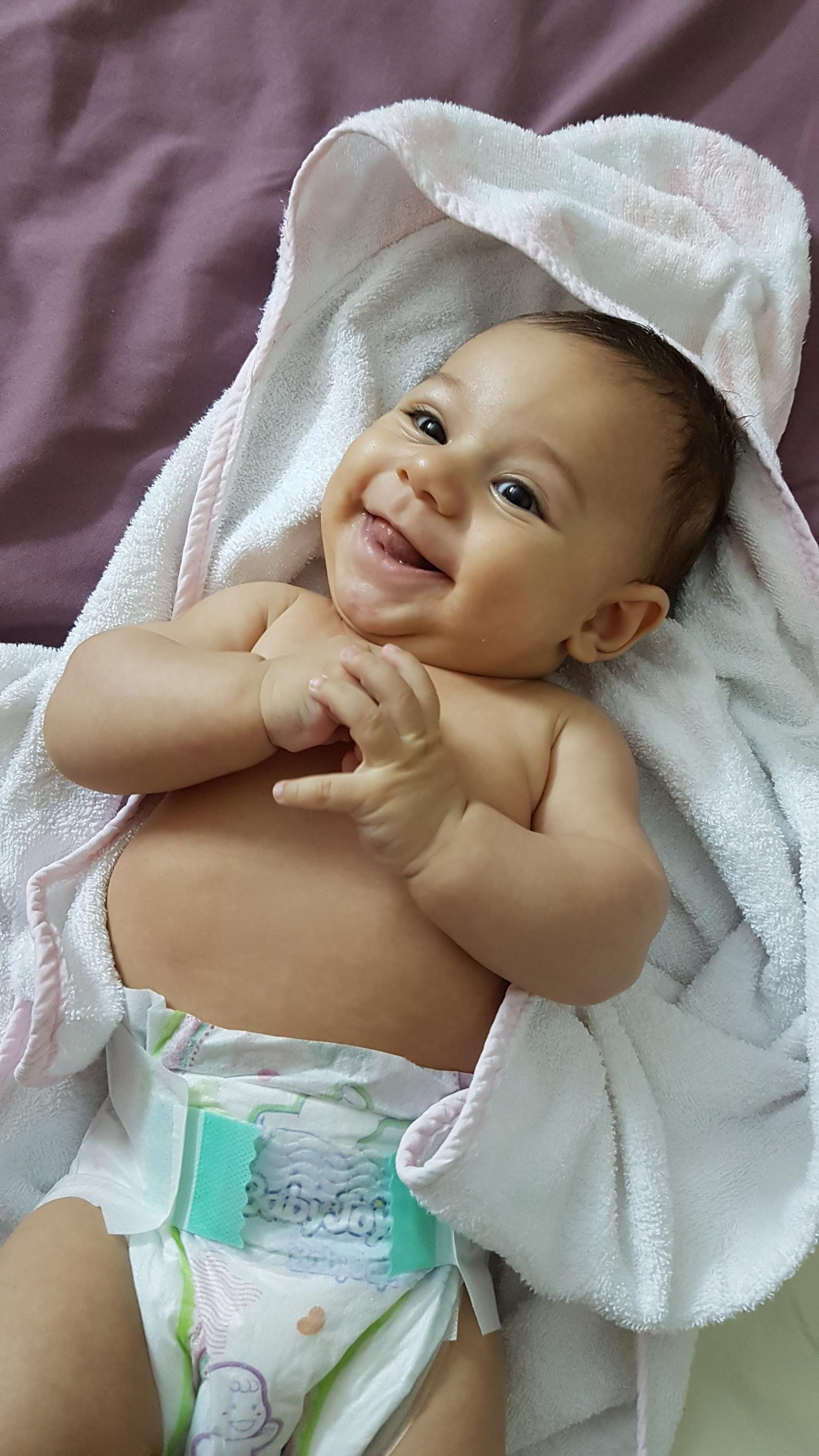
6 Months
Does your 6-month-old…
- turn to the source of sounds?
- startle in response to sudden, loud noises?
- make different cries for different needs — I’m hungry, I’m tired?
- watch your face as you talk?
- smile and laugh in response to your smiles and laughs?
- imitate coughs or other sounds — ah, eh, buh?
Refer if any of these signs are present:
- Limited eye gaze
- A limited shared interest in others
- Limited social smiling
- The child is unusually quiet; does not make sounds
- The child does not consistently respond to speech
- The child shows little or no interest in people or objects
- Any loss of social and/or language skills
If you have noticed any of these signs, your child may have developmental differences and communication difficulties. More support is needed.
A referral for a developmental assessment might be required.
Fill out the First Words Communication Checkup (FWCCU) our online screening tool to determine the next steps.
Contact the CHEO Access Team at 613-737-2757 if needed. You will be asked to complete the FWCCU.
How can I help my 6-month old learn to communicate?
- Avoid giving your child any screen time. Children learn best from interacting with others around them.
- Be face to face when you speak with your baby. This helps them learn how to make the sounds you are making. They will watch the way your lips, tongue, and teeth move.
- Imitate your baby’s sounds and add words, gestures, and smiles.
- Talk to your baby when dressing, washing and feeding them.
- Name the objects they are looking at or playing with.
- Read to your baby. The pictures they see will help them to understand your words. Anything will do! Babies just want to be close to you and hear your voice.
- Sing songs and nursery rhymes. Sing the same songs and nursery rhymes often during your day. If your baby is having fun, keep singing until they no longer interested.
If your child does not do one or several of the above, we can help!

9 Months
Does your 9-month-old…
- respond to their name?
- respond to the telephone ringing or a knock at the door?
- understand being told “no”?
- get what they want through sounds and gestures?
- play social games with you e.g., peek-a-boo?
- enjoy being around people?
- babble and repeat sounds – babababa, duhduhduh?
Refer if any of these signs are present:
- Limited eye gaze
- A limited shared interest in others
- Limited social smiling
- Lack of sound imitation; Your child is unusually quiet; does not attempt to repeat sounds or words
- Absence of babbling with consonant sounds
- Late-onset/limited use of gestures (i.e. reaching to be picked up)
- The child does not appear to be reaching the appropriate milestones
- Any loss of any social and/or language skills
If you have noticed any of these signs, your child may have developmental differences and communication difficulties. More support is needed.
A referral for a developmental assessment might be required.
Fill out the First Words Communication Checkup (FWCCU) our online screening tool to determine the next steps.
Contact the CHEO Access Team at 613-737-2757 if needed. You will be asked to complete the FWCCU.
How can I help my 9-month old learn to communicate?
- Avoid giving your child any screen time. Children learn best from interacting with others around them.
- Position yourself to face your baby so you can see each other’s reactions. This will help your child see the way you are making your sounds.
- Name objects that your baby is playing with. Talk about what interests them.
- Avoid using “baby talk.” Call objects by their correct name.
- Interpret your child’s sounds and gestures by putting words to them.
- Play social games that involve lots of repetition e.g. ”peek-a-boo”, “patty-cake.”
- Sing songs and have fun doing daily routines like meals, bath and dressing time.
If your child does not do one or several of the above, we can help!
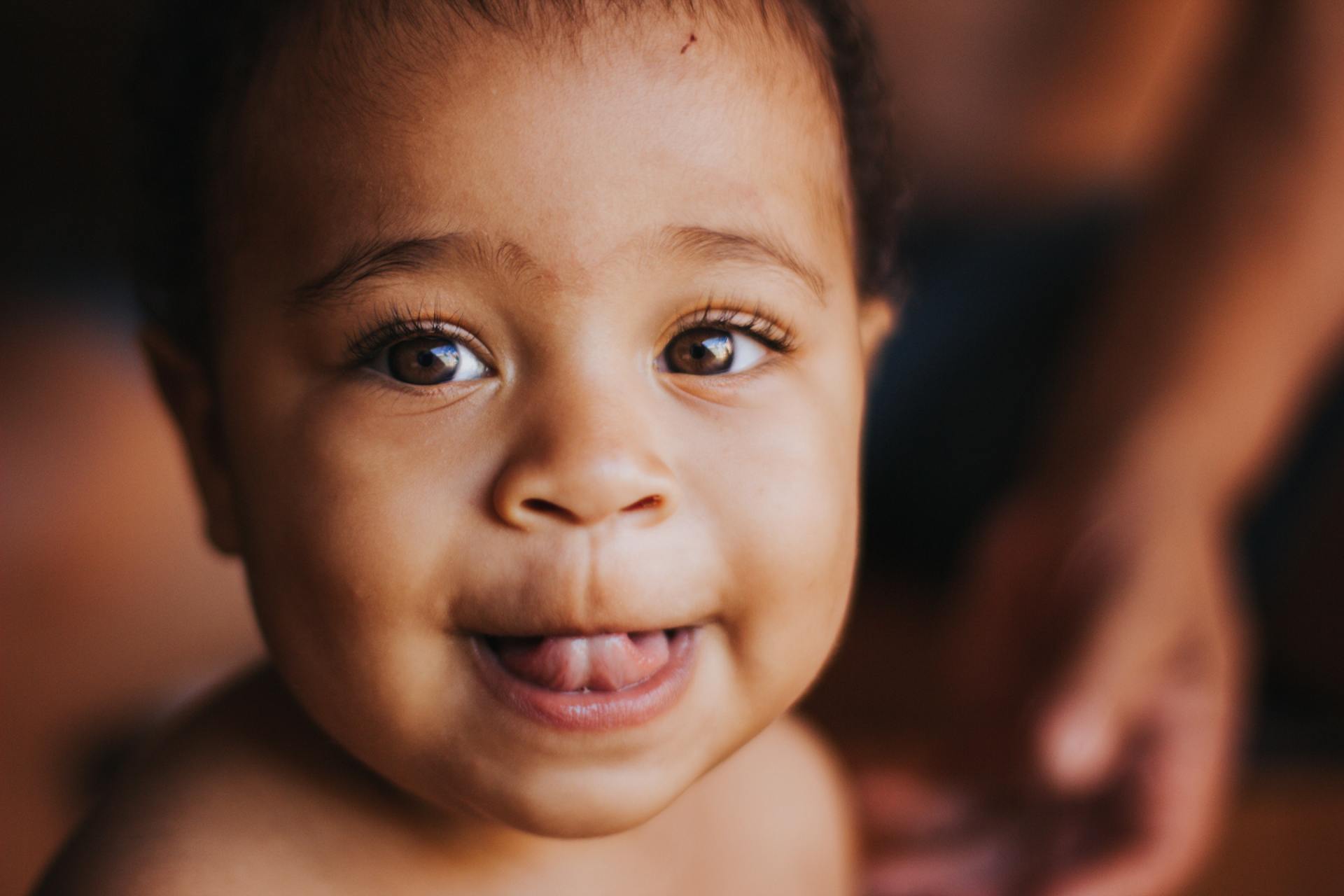
12 Months
Does your 1-year-old…
- follow simple one-step directions – “sit down”?
- look across the room to something you point to?
- use three or more words?
- use gestures to communicate – waves “bye-bye”, shakes head “no”?
- get your attention using sounds, gestures and pointing while looking at your eyes?
- bring you toys to show you?
- “perform” for attention and praise?
- combine lots of sounds as though talking e.g. “abada baduh abee”?
- show interest in simple picture books?
Refer if any of these signs are present:
- A limited shared interest in others
- Lack of response to their name
- Late-onset or limited use of gestures (e.g. showing or pointing)
- Difficulty following an adult’s point
- Late-onset, limited and/or absence of babbling
- Does not appear to understand the names of familiar things (e.g. body parts or common clothing)
- Does not use gestures, sounds or word attempts to communicate
- Unable to follow a simple one-step direction unless accompanied by a gesture
- Frustrated when trying to communicate (may show you frustration by temper tantrums, biting, hitting)
- Does not appear to be reaching the appropriate milestones
- Limited functional play skills and/or repetitive play and/or repetitive movement behaviours
- Lack of playing with a variety of toys
- Excessive interest in particular toys
- Using a person’s hand as a tool
- Any loss of any social and/or language skills
If you have noticed any of these signs, your child may have developmental differences and communication difficulties. More support is needed.
A referral for a developmental assessment might be required.
Fill out the First Words Communication Checkup (FWCCU) our online screening tool to determine the next steps.
Contact the CHEO Access Team at 613-737-2757 if needed. You will be asked to complete the FWCCU.
How can I help my 1-year old learn to communicate:
- Avoid giving your child any screen time. Children learn best from interacting with others around them.
- Talk about what interests your baby by labeling objects, actions, and feelings.
- Interpret your child’s sounds and gestures by putting words to them.
- Sing songs like “Head and Shoulders” to help name body parts.
- Look at picture books and talk about the pictures. When we talk about the pictures found in a book, we often give more language to children than what is written in the story. Also, you can watch where their eyes are looking and talk about what interests them in the picture.
- Introduce pretend play with your child’s favourite doll or toy animal. Include it in your conversations and your play e.g. “Rover wants to play too. Can he roll the ball with us?”
If your child does not do one or several of the above, we can help!
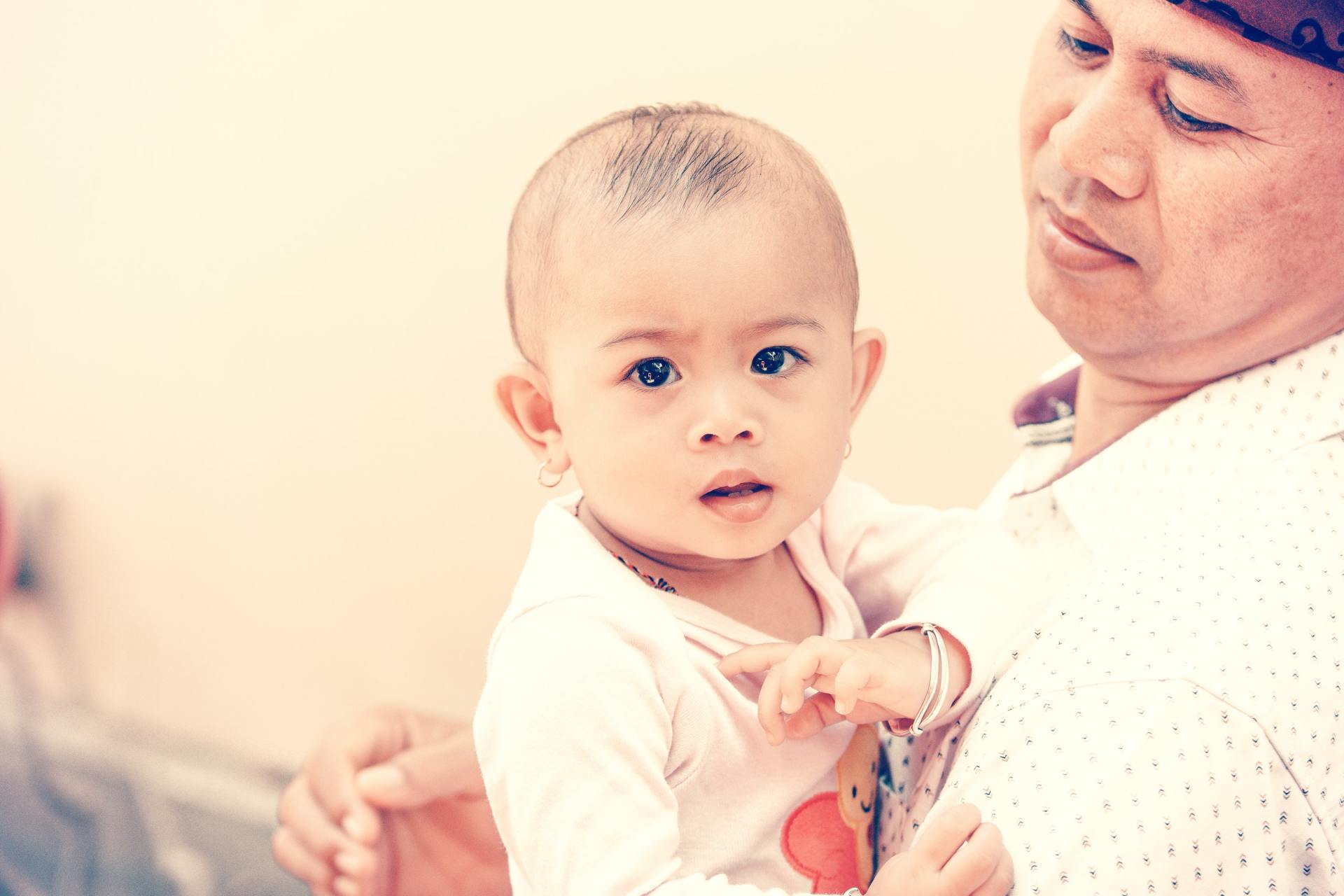
18 Months
Does your 18-month-old…
- understand the concepts of “in and out”, “off and on”?
- point to several body parts when asked?
- use at least 20 words?
- respond with words or gestures to simple questions – “Where’s teddy?”, “What’s that?”
- demonstrate pretend play with toys – gives teddy a drink?
- make at least four different consonant sounds – b, n, d, g, w, h?
- enjoy being read to and looking at simple books with you?
- point to pictures using one finger?
Refer if any of these signs are present:
- Limited eye gaze
- A limited shared interest in others
- Lack of response to their name
- Late-onset or limited use of gestures (e.g. showing or pointing)
- Difficulty following an adult’s point
- Limited production of sounds
- Late-onset of first words, use of first words at 15 to 16 months
- Difficulty with understanding: unable to point to common body parts when asked or follow a simple one-step direction unless accompanied by a gesture
- The child is frustrated when trying to communicate (may show you frustration by temper tantrums, biting, hitting)
- Limited pretend play skills (e.g. Give baby a bottle, pat their back, put to bed)
- Repetitive play and/or movement behaviors
- The child does not appear to be reaching the appropriate milestones
- Any loss of any social and/or language skills.
If you have noticed any of these signs, your child may have developmental differences and communication difficulties. More support is needed.
A referral for a developmental assessment might be required.
Fill out the First Words Communication Checkup (FWCCU) our online screening tool to determine the next steps.
Contact the CHEO Access Team at 613-737-2757 if needed. You will be asked to complete the FWCCU.
How can I help my 18-month old learn to communicate?
- Avoid giving your child any screen time. Children learn best from interacting with others around them.
- Add 1 or 2 words to what your toddler says. If he says “cookie”, you can say “Want big cookie.”
- Keep encouraging communication even if you do not always understand what your toddler is trying to say.
- Give your toddler time to understand and answer you. It can take up to 10 seconds or more for your child to answer you. Be patient, keep eye contact and wait for your child to talk. Avoid repeating your question until your child has looked away. If your child is looking at you, your child is still thinking!
- Play pretend games (e.g. dress up, feeding and caring for a doll/stuffed toy, farm and animals).
- Sing songs and nursery rhymes that use actions like “The Wheels on the Bus.”
If your child does not do one or several of the above, we can help!

24 Months
Does your 2-year old…
- follow two-step directions – “Go find your teddy bear and show it to Grandma”?
- use 100 or more words?
- use at least two pronouns – “you”, “me”, “mine”?
- consistently combine two or more words in short phrases – “daddy hat”, “truck go down”?
- enjoy being with other children?
- offer toys to peers and imitate other children’s actions and words?
- talk in a way that people can understand their words 50 to 60 percent of the time?
- form words and sounds easily and effortlessly?
- hold books the right way up and turn pages?
- “read” to stuffed animals or toys?
- scribble with crayons?
Refer if any of these signs are present:
- A limited shared interest in others
- Lack of response to their name
- Difficulty with gestures such as showing and pointing
- Difficulty following an adult’s point
- Does not initiate communication
- Limited production of sounds
- Uses more gestures than words to communicate
- Doesn’t seem to understand when you talk to them
- Finds it hard to point to simple pictures or follow simple directions
- Repetitive play or movement behaviours
- Any loss of any social and/or language skills
If you have noticed any of these signs, your child may have developmental differences and communication difficulties. More support is needed.
A referral for a developmental assessment might be required.
Fill out the First Words Communication Checkup (FWCCU) our online screening tool to determine the next steps.
Contact the CHEO Access Team at 613-737-2757 if needed. You will be asked to complete the FWCCU.
How can I help my 2-year old learn to communicate:
- Limit your child's screen time to 1 hr/day. Children learn best from interacting with others around them.
- Expand on what your child says by repeating the message back and adding words to complete the thought or add a new idea.
- Involve your child in helping out around the house. Toddlers love simple household tasks: wiping the table, sorting the laundry, tidying up the toys.
- Leave books out for your child to look at, both on their own and with you.
- Sing songs about everyday routines: hand washing, tooth brushing, tidying up.
- Play with your toddler in lots of different ways by using puzzles, blocks, sand and play dough. Visit toy lending libraries and garage sales for ideas.
- Go to playgroups, drop-ins or the park so that your child can play with other children.
If your child does not do one or several of the above, we can help!

30 Months
Does your 30-month old…
- understand the concepts of size (big/little) and quantity (a little, a lot, more)?
- use some adult grammar – “two cookies”, “bird flying”, “I jumped”?
- use more than 350 words?
- use action words – “run, spill, fall?”
- take short turns with other children, using both toys and words?
- show concern when another child is hurt or sad?
- combine several actions in play – feeds doll then puts it to sleep; puts blocks in the train then drives train and drops the blocks off?
- put the sound at the start of most words?
- produce words with two or more syllables or beats – “ba-na-na”, “com-pu-ter”, “a-pple”? …recognize familiar logos and signs – McDonalds’ golden arches, stop sign?
- remember and understand familiar stories?
Refer if any of these signs are present:
- Limited eye gaze and/or limited shared interest in others
- Repeats exactly what you say rather than responding
- Disinterest or detachment from other children of the same age when playing
- Does not look at you when listening or speaking
- Makes noises or uses gestures to express needs instead of using words or sentences
- Repetitive play or movement behaviors
- Limited sequenced pretend play
- Loss of any social and/or language skills
If you have noticed any of these signs, your child may have developmental differences and communication difficulties. More support is needed.
A referral for a developmental assessment might be required.
Fill out the First Words Communication Checkup (FWCCU) our online screening tool to determine the next steps.
Contact the CHEO Access Team at 613-737-2757 if needed. You will be asked to complete the FWCCU.
How can I help my 30-month old learn to communicate:
- Limit your child's screen time to 1 hr/day. Children learn best from interacting with others around them.
- Take the time to talk with your child. Through conversations, they will learn new words and how to make short sentences.
- Play with sensory materials like play dough, water, and sand. This provides many opportunities to use descriptive words.
- Sing songs that have lots of repetition like “Old MacDonald Had a Farm”.
- Read every day to build vocabulary. Reread books over and over!
- Tell and read short stories. You can make them up or use books.
- Sort household objects by size: small cushions/big pillows, small and big balls, etc.
If your child does not do one or several of the above, we can help!

3 Years
Does your 3-year old…
- understand “who”, “what”, “where” and “why” questions?
- talk in long sentences, using 5 or more words?
- talk about things that happened in the past – trip to grandparents’ house, a day at childcare?
- tell simple stories?
- show affection for favourite playmates?
- come up with pretend play ideas that have several steps – cooking a meal, repairing a car?
- have speech that can be understood by most people outside of the family, most of the time?
- have an awareness of what print can be used for – in menus, lists, signs?
- have a beginning interest in, and awareness of, rhyming
Refer if any of these signs are present:
- Limited eye gaze and/or limited shared interest in others
- Repeats exactly what you say instead of responding to questions or comments
- Lack of interest in or contact with other children of the same age when playing
- Does not look at you when listening or speaking
- Makes noises or uses gestures to show needs instead of using words or sentences
- Repetitive play or movement behaviours
- Limited sequenced pretend play
- Any loss of any social and/or language skills
If you have noticed any of these signs, your child may have developmental differences and communication difficulties. More support is needed.
A referral for a developmental assessment might be required.
Fill out the First Words Communication Checkup (FWCCU) our online screening tool to determine the next steps.
Contact the CHEO Access Team at 613-737-2757 if needed. You will be asked to complete the FWCCU.
How can I help my 3-year old learn to communicate:
- Limit your child's screen time to 1 hr/day. Children learn best from interacting with others around them.
- Ask your child questions about things they find interesting.
- Model correct sounds and grammar for your child.
- Sing songs that end with rhyming words. Talk about how the words sound the same.
- Read stories that have repetition and ask your child to predict what is going to happen. Good books are “Brown Bear, Brown Bear What Do You See?” and “Going On A Bear Hunt.”
- Pretend with your child by acting out scenes from favourite stories. Pretend that we are going on a trip to the doctor’s office or to the moon!
- Check out our “Strategies” and “Learning Tools” sections for other strategies and resources!
If your child does not do one or several of the above, we can help!

4 Years
Does your 4-year old…
- follow directions involving 3 or more steps – “First get some paper, then draw a picture, last give it to mom?”
- use adult-type grammar?
- tell stories with a clear beginning, middle and end?
- talk to try to solve problems with adults and other children?”
- demonstrate increasingly complex imaginative play?
- talk in a way that is understood by strangers almost all of the time?
- generate simple rhymes – “cat-bat”?
- match some letters with their sounds – “letter T says ‘tuh’?
Refer if any of these signs are present:
- Limited eye gaze and/or limited shared interest in others
- Repeats exactly what you say instead of responding to questions or comments
- Lack of interest in or contact with other children of the same age during play
- Does not look at you when listening or speaking
- Makes noises or uses gestures to show needs instead of using words or sentences
- May talk but what they say may not be relevant to the conversation
- Repetitive play or movement behaviours
- Limited sequenced pretend play
- Any loss of any social and/or language skills
If you have noticed any of these signs, your child may have developmental differences and communication difficulties. More support is needed.
A referral for a developmental assessment might be required.
Referrals for children entering Junior Kindergarten will be accepted if referred before April 1st (of their JK year).
To access services:
- Fill out our online screening tool First Words Communication Checkup (FWCCU) to determine the next steps.
- If needed, contact the CHEO Access Team at 613-737-2757. You will be required to fill out the FWCCU.
Children already in Junior Kindergarten or older are not eligible for our First Words services Parents and guardians can request speech and language services through their school board. It is important to refer BEFORE your child enters Junior Kindergarten.
How can I help my 4-year old learn to communicate:
- Limit your child's screen time to 1 hr/day. Children learn best from interacting with others around them.
- Ask your child questions about things they find interesting.
- Talk about the similarities and differences in toys, rocks, balls, etc.
- Sing songs that end with rhyming words and make up new verses.
- Have conversations about books with your child. When reading to your child, encourage them to guess what the book is about and talk about the different characters.
- Talk about letters and words on cereal boxes and signs (e.g. STOP sign).
If your child does not do one or several of the above, we can help!

5 Years
Does your 5-year old…
- follow group directions – “half the class gets a toy”?
- understand directions involving “if…then” – “If you’re wearing runners, then line up for gym”?
- describe past, present and future events in detail?
- seek to please friends?”
- show increasing independence in friendships (e.g. visiting a neighbour without supervision)?
- use almost all of the sounds of their first language with few to no errors?
- know all the letters of the alphabet?
- identify the sounds at the beginning of some words – “Pop starts with the ‘puh’ sound?”
Refer if any of these signs are present:
- Limited eye gaze and/or limited shared interest in others
- Repeats exactly what you say instead of responding to questions or comments
- Lack of interest in or contact with other children of the same age during play
- Does not look at you when listening or speaking
- Makes noises or uses gestures to show what they want instead of using words or sentences
- May talk but remarks may not be relevant to the conversation
- Repetitive play or movement behaviours
- Limited sequenced pretend play
- Any loss of any social and/or language skills
If you have noticed any of these signs, your child may have developmental differences and communication difficulties. More support is needed.
A referral for a developmental assessment might be required.
Children eligible for Junior Kindergarten and older are not eligible for our preschool program.
Parents and guardians can request speech and language services through their school board.
How can I help my 5-year old learn to communicate:
- Limit your child's screen time to 1 hr/day. Children learn best from interacting with others around them.
- Encourage your child to start a conversation and follow their lead by asking questions, adding new information and waiting for an answer.
- Model correct sounds and grammar for your child.
- Cook with your child. Give simple cooking tasks like washing the apples or tearing the lettuce. Talk about the steps involved.
- Look for letters in books, on DVDs and on street signs. Make the sounds for the letters (e.g. “T” sounds like “tuh”)
If your child does not do one or several of the above, speak with your child’s Primary Health Care Provider (doctor, nurse), contact your child’s school for support or contact Ottawa Public Health at 613-580-6744 or 613-PARENTS for more information.

